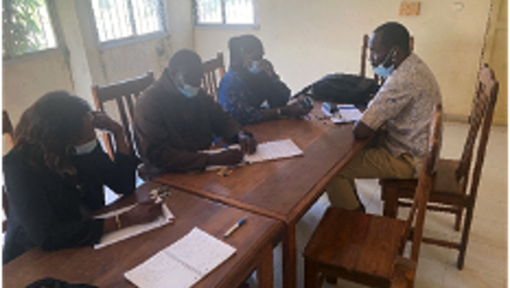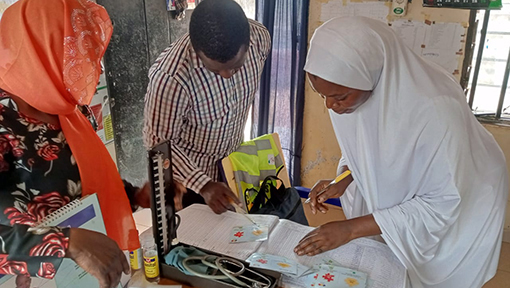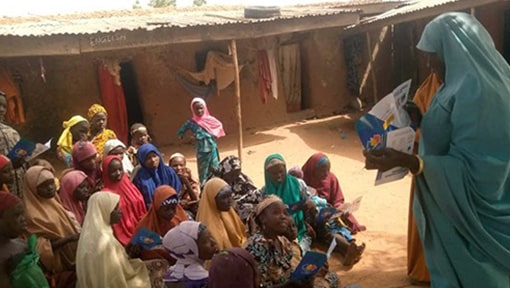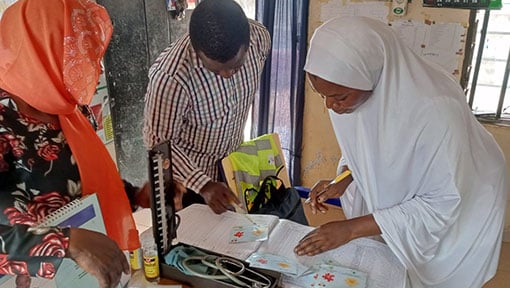Improved Coordination in Senegal Municipality Leads to More Family Planning Funding
 After the Senegalese government decentralized its health system in the mid 1990s, district and community authorities were able to plan and implement context-specific approaches to improve health care service delivery. Today, each of the country’s 76 health districts has at least one health center and several health posts, as well as a network of community-based health huts and outreach sites to extend services to communities that otherwise would have no access.
After the Senegalese government decentralized its health system in the mid 1990s, district and community authorities were able to plan and implement context-specific approaches to improve health care service delivery. Today, each of the country’s 76 health districts has at least one health center and several health posts, as well as a network of community-based health huts and outreach sites to extend services to communities that otherwise would have no access.
To meet the costs resulting from this transfer of power and ensure that municipalities make contributions to provide health services, the government created a grant referred to as the Decentralization Endowment Fund. The government of Senegal simultaneously transfers funds to the municipalities to support the financing of basic services, particularly health services. This includes family planning and adolescent and youth sexual and reproductive health (AYSRH). These funds are in addition to local resources mobilized by municipalities that contribute to funding the implementation of The Challenge Initiative’s (TCI) proven approaches.
Before TCI launched in Senegal, the municipality of Thionck-Essyl – a commune in the city of Ziguinchor – contributed nothing to the Decentralization Endowment Fund for health services. This put a financial strain on the health district to provide services – including family planning and AYSRH services – to meet the needs of the local population. In addition, because of poor communication between the municipality and health district, a climate of conflict between the two bodies arose, preventing coordination and effective funding of health activities.
To engage with TCI, interested geographies must establish stakeholder coordination groups to implement and monitor its high-impact approaches. The municipality and health district in Thionck-Essyl had never collaborated like this before TCI, but now they meet monthly as part of the Technical Program Management Unit (l’Unité de Coordination et de Gestion, UTG) and quarterly for the Joint Steering Committee (Comité Conjoint de Pilotage, CCP).
These regularly scheduled meetings enable the municipality to better appreciate issues related to implementing TCI’s family planning and AYSRH approaches, while also strengthening planning and ensuring proper financing for the approaches. This in turn improves access, coverage and delivery of quality health services for community members in the area. Plans are reviewed during the monthly UTG meeting so that the following month’s activities can be informed based on learnings from the previous month. In addition, this review enables the municipality to be part of the budgeting process for the upcoming month’s activities and pay into the Decentralization Endowment Funds accordingly.
As a result of these review meetings, Jeanne Tine, senior coordinator of the Thionck Essyl health district, shared:
Thanks to TCI, the collaboration between the health system and the municipality has enabled the mayor to make endowment funds available.”
The municipality of Thionck-Essyl contributed 2,000,000 CFA (about $3,600 USD) to the Decentralization Endowment Funds for the first time during fiscal year 2021. The health district used these funds to recruit a midwife and procure the necessary equipment and supplies to provide quality family planning and AYSRH services.
Oumar Badji, mayor of Thionck-Essyl, shared during a recent CCP meeting what led to this change:
It is with the regularity and participation of the Municipality of Thionck-Essyl in the meetings of the UCG that collaboration with the district has improved. By participating in the review and planning of activities, we better understand what the funds are intended for and the impact of the activities on our populations who are just waiting for better health.”
The functioning of the coordination bodies and the participation of stakeholders from the municipality, the health district and the community allow not only for better engagement in implementing family planning and AYSRH activities, but also ensures improved planning and increased likelihood of sustaining the interventions after graduation from TCI’s direct support.
Local stakeholders truly appreciate the establishment of UCG and CCP and have encouraged local authorities, in this case the District Chief Physician and the mayor, to maintain these mechanisms and invite municipalities not yet participating in TCI to draw inspiration from this approach.






